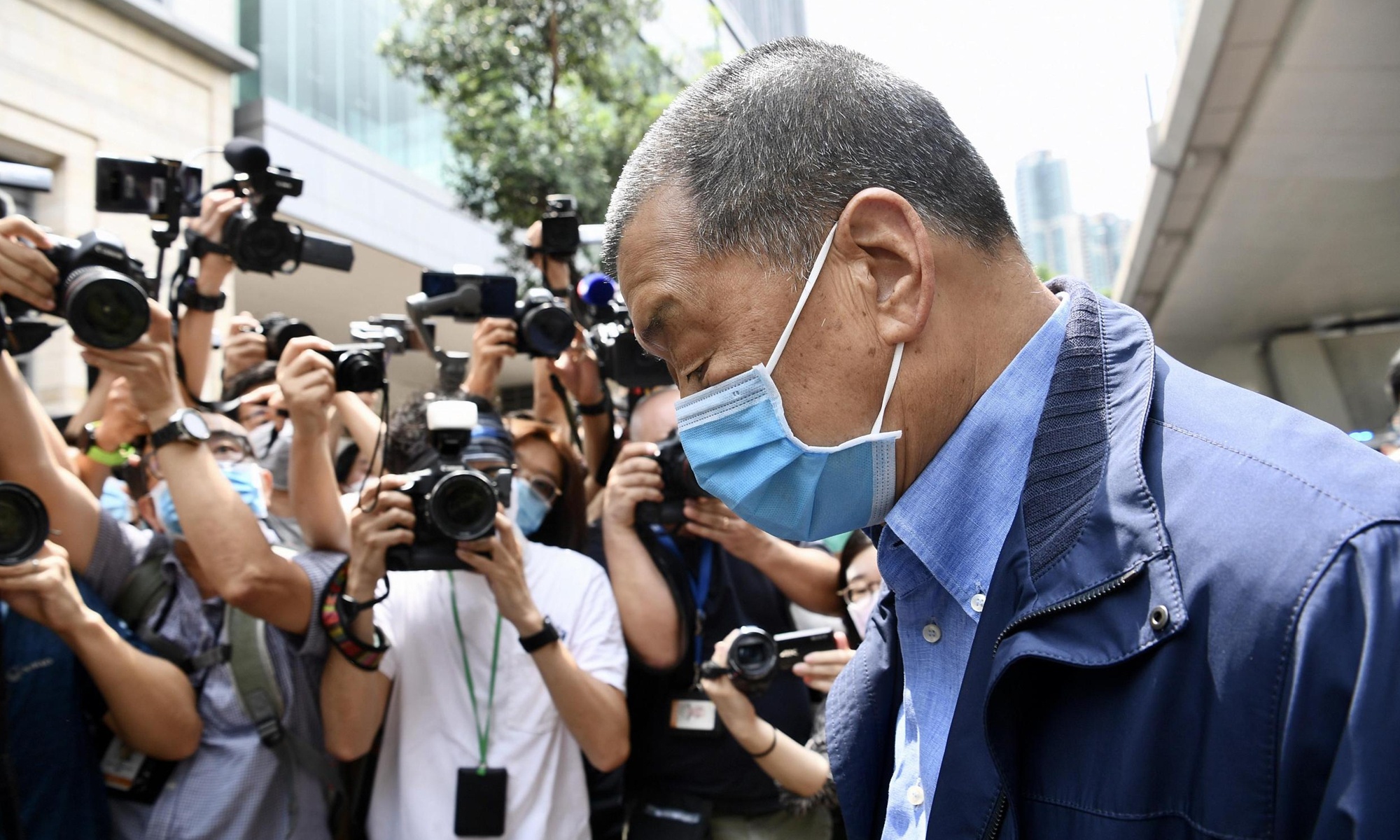
Jimmy Lai Photo: VCG
Granting Jimmy Lai bail with conditions does not mean the founder of Apple Daily is now free, Hong Kong police sources and legal experts said. Given the large amount of evidence seized by police and the complex nature of the case, law enforcement authorities need more time to analyze the evidence before laying charges.
Lai was released on bail and left Mong Kok police station late Monday after more than 40 hours of detention. Bail was set at HK$500,000 and his HK$50 million in assets were frozen, according to local media reports. Lai's two sons and four senior executives of Next Digital, the parent company of Apple Daily, were also granted bail.
Agnes Chow, a major figure in the anti-government protests, was also granted bail about 24 hours after she was arrested on suspicion of collusion with foreign forces. She was released on HK$20,000 bail and a HK$180,000 personal guarantee, with her passport seized.
While some anti-government forces and foreign figures that have been constantly meddling in Hong Kong affairs have cheered the "release" of these high-profile riot supporters as a sign that they are "fighting till the end," a source close to the police and some legal experts pointed out that "it's standard procedure."
"We'll seek legal advice from the department of justice before bringing charges," a source close to the Hong Kong Police Force (HKPF) told the Global Times, emphasizing that it does not mean the suspects were free.
According to Hong Kong laws, unless suspects are taken to court for a "holding charge," they must be bailed within 48 hours.
However, the national security law for Hong Kong gives the HKPF more powers, including seizing a person's passport and imposing travel restrictions, which are seen as important factors in handling cases of a complex nature and involving endangering national security, sources said.
"Before, if someone was arrested for theft and bailed, the person could still flee Hong Kong and go into exile before appearing in court because we couldn't seize their passport," the source said, noting that the situation is different now.
"This is a high-profile case that involves suspicion of violating the national security law. Considering the large amount of material seized and other evidence, it will take time to handle the case in accordance with local legal procedures in Hong Kong," Tian Feilong, a legal expert on Hong Kong affairs at Beihang University in Beijing, told the Global Times on Wednesday.
It also requires local authorities to be cautious in pushing forward law enforcement procedures, Tian noted.


